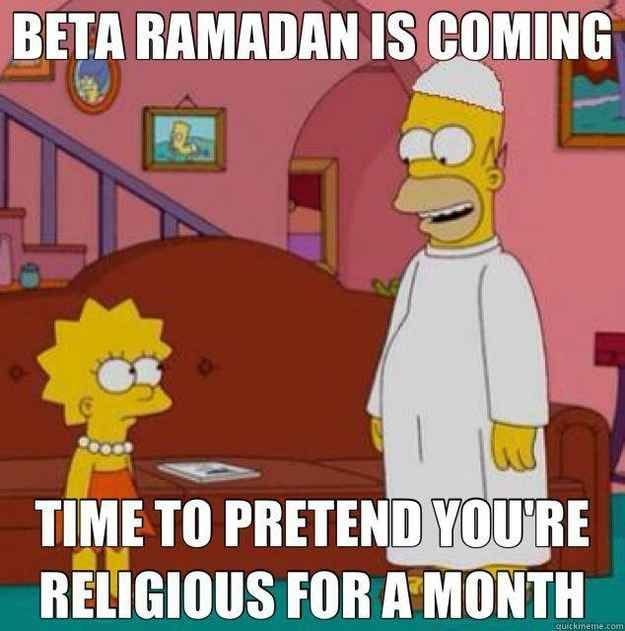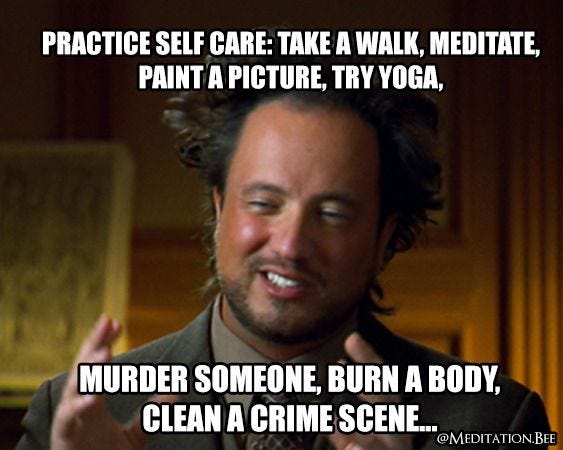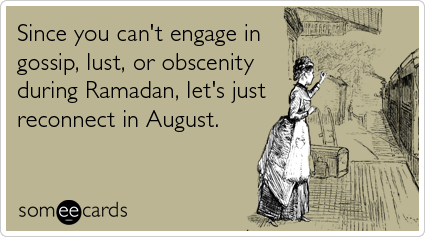On Ramadan and why I refuse to fast
I’m sure that title caught a few people. It isn’t completely true but isn’t a lie either. It all depends upon how you define ‘fasting’. I get asked a lot by people if I fast for Ramadan, and I usually say ‘yes’. If someone asks if I fast from food specifically during Ramadan, I am more precise as well and say ‘some times but usually not’.
Growing up, Ramadan wasn’t a ‘thing’ in our family or community other than for Layl-tul-Qadr (The night it is believed the first Quranic verse was revealed to Prophet Muhammad) or the festive last day, Eid-al-Fitr. To be honest I don’t think I even realized the brown way of calling it Ramzan was the same thing as Ramadan! I don’t recall much talk about fasting from food, and outside of Ismailis, I didn’t really know other Muslims so I never saw how they observed Ramadan.
It eventually changed somewhat when it came up in weekend religious classes. There, the point of Ramadan was framed as a time to abstain from bad thoughts and habits, and we heard about how at some point there was guidance to the effect that it shouldn’t be just for the month of Ramadan, but as a year-round practice. It sounded good to me - we just need to be good people in life.
It wasn’t until middle school where I started to meet other Muslims and saw they did Ramadan differently. Some similar, some very different. I recall a feast I went to at a nearby plaza at the end of one day — incredible food spreads, celebrations, and even shisha pipes. It was festive. A direct contrast to what I had experienced until then where Ramadan pretty much came and went.
Interestingly, I started to realize that Ramadan *was* actually a thing in our home, but in a more subtle and non-verbal way. My parents, especially my mother who was a teacher, would lead classes and read stories of kindness and helping others more during this month. Our community would volunteer at food shelters, which the Quran talks about as an act to perform in Ramadan as well. Turns out my parents had been navigating their own path in understanding their relationship with Ramadan too.
And then I started to notice athletes fasting - Hakeem Olajuwon fasting during the 1992 NBA season made it more visible. And then Mike Tyson became Muslim and talked about fasting. There were rappers talking about it too. It became almost cool even. It prompted me to fast from food for the month for the first time in university. The physical aspect of fasting wasn’t as challenging as I anticipated. My floor-mates (none were Muslim) were pretty supportive too. Many were in the midst of midterms, so they would be up at odd hours studying and would make sure to wake me up before dawn to have a bite, and then I’d go back to sleep until my classes which were usually later in the day.
But navigating the social pressures, especially from other Muslims who had strong opinions about the 'right' way to fast, was more challenging. A classmate once critiqued my approach to fasting, insisting that I was doing it wrong by not adhering to the exact prescribed methods from some Imam in Saudi Arabia. Another admonished me for waking up at 4am to say the prayer then going back to sleep. I would have similar experiences often - this judging and an odd emphasis on outward displays of ‘the right way’ of fasting during Ramadan.
I had an uncomfortable relationship with the outward display for years. When I moved to London after university, I remember the crazy celebrations on Edgware Road during Ramadan and being conflicted with people claiming increased piety but then having these nightly celebrations. I met so many more Muslims in London too and many of those who I knew were fasting from food, didn’t seem to put much emphasis on their inner spirituality. They’d continue to make crass jokes throughout the day, gossiping or insulting others, behaving in ways at work or school that lacked principles and ethics, but they thought that because they were fasting from food in the exact prescribed way that they were somehow better or enlightened. One friend would fast as prescribed to him with precise steps, but didn’t think it odd to be commenting on a girl that was walking by us. He used to eat pork and drink beer after sunset too. It felt like they were missing the point, and I felt pretty disconnected from it. More recently the oddity of those who are fasting, who then need to publish their end of day meals and brag about making it through another day with an instagram or TikTok post just seems weird.
At the same time, I started to read a lot more about Ismaili theology and what it actually says within the Quran about Ramadan and slowly started to feel a stronger connection with the Ismaili interpretations that emphasized the inner dimensions of fasting, specifically the concept of Taqwa—the awareness of God's omnipresence. These resonated with me and I basically started to view Ramadan as a great excuse for a detox. Some people pay a few thousand bucks to go to some retreat, while I just started using the Ramadan month to try to clear my mind, eat better, etc. Sometimes I would fast from food as well, but the real challenging part was to try and control thoughts, anger, annoyance, and to avoid just general hedonism! Seriously, it isn’t like social life stops and there are way too many great meme’s now. Avoiding food was way easier!
And then one day, I spoke with an Ismaili from Syria who questioned why I would fast from food at all because it supports those who ‘hate us’ as he termed it. He talked about how Ismailis fought for the right to practice our religion as we have interpreted it, including our approach to fasting. Even today, in places like Tajikistan, Afghanistan, Syria, Ismailis are persecuted by ‘hardliners’ who want to brand us as not real Muslims because of our focus on the essence of the religion rather than the form.
This has added another dimension to my relationship to Ramadan. How important is it to uphold one’s interpretation and not get swallowed up into a larger whole that doesn’t really accept you? In Syria, it isn’t like if the ‘rebels’ would come into power that they would suddenly like Ismailis. The Taliban have no love lost on us either. I have a disdain for the ‘wahhabification’ of Islam in recent years and I wonder sometimes how much is that facilitated by supporting a one dimensional view of how to practice our faith? Not just the notion that you have to focus on doing rituals exactly right rather than on the esoteric aspects, but more basically: the notion that our religion even supports the idea that anyone can judge others on how they should practice their religion.
Ramadan has taken on a different meaning for me over the last few years. The pandemic made me really appreciate a forced time to take a pause in life. I’ve spoken about how the pandemic was a godsend in many ways for me, and since, Ramadan has become a time for reflection, not just as a spiritual journey, but also on the broader implications of having the privilege to interpret and practice my faith freely. On the fortune I have had to be living in cities/countries that afford me that freedom to choose, as well as a community that emphasizes choice.
One of my favorite verses from the Quran: ‘There is no compulsion in religion.’
In that vein, I refuse to be told I should ‘fast from food’ under the premise that it is the ‘right way’ to observe Ramadan. Those who choose to fast from food - more power to them. It is an admirable thing for sure. But it isn’t the only way to fast during Ramadan and the plurality of Islam is a beautiful thing. The freedom to negotiate your interpretation of God’s desire (or even existence) is for you alone to determine.
Whether I fast from food or not specifically will be a personal decision and other than my close friends and family, not something I will advertise either way. Fasting from food is a means to an end - a reminder to foster kindness, humility, community. An reminder to pause and reflect on life and my own values that I want to live and my own relationship with this thing called life, which encompasses everyone and everything around me. Who and what it is that I want to keep growing into. It is a personal journey. It is not for someone else to dictate and to insist upon how I seek that truth or for me to dictate to anyone else. And under that premise, if I’m asked if I am fasting though, I will say ‘yes’.
It is definitely getting increasingly difficult to focus on the inner fast though in this interconnected and digitized world. I mean, like I said earlier, how am I supposed to deal with meme’s? There’s no issue with laughing – humor is God’s creation right? There are just too many good ones and I have friends who will intentionally push the limits once they read this…
How about you? Do you observe Ramadan? Or if you aren’t Muslim, do you have other religious or cultural practices that you struggle with or navigate? Not surprisingly, it seems to be universal thing.
So why did I write this? As usual I’m writing for my own benefit and for my kid primarily. I want her to reflect on my thoughts and know when she goes through similar things, that I did too, in case I’m not there. But my previous posts have made me realize that so many of these things are things that others think about as well and so it is a bit cathartic for everyone. Keep liking/sharing and/or sending me messages. It is encouraging not just for me but others too.
Dangling thought: the commercialization of Ramadan and Eid strikes me as odd now too, but that's a story for another day.







Thanks for sharing this is beautiful interpretation, Inshallah it will bring peace to others and deepen their personal awareness around intent and clarity in the practise of religion & spirituality
As always, thoughtful perspective and needed enlightenment from Rahim for us all in this auspicious month for muslims. We can all extract and practice positive elements from religion and traditions.